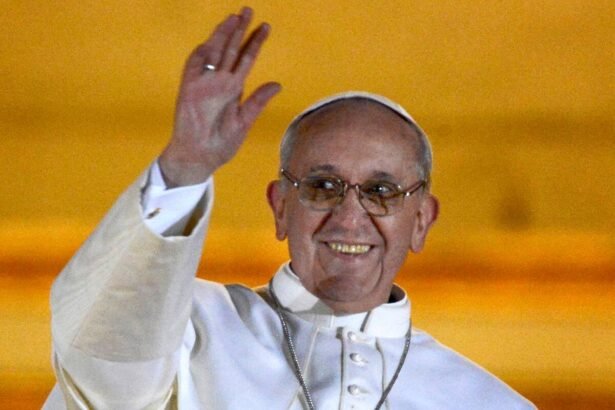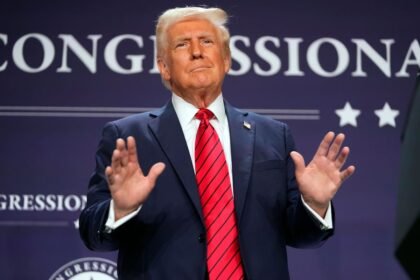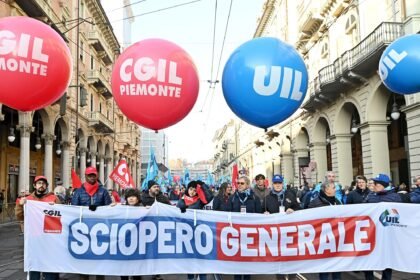A native of Buenos Aires City and a keen witness to the political twists and turns that marked Argentina since the mid-20th century, during his pontificate Jorge Bergoglio maintained a complex relationship with his homeland, to which he never returned as pope. But the biggest strains emerged in his relations with those in power and their agents, not in the dialogue and physical communication with the vast base of believers who embraced his pastoral sensibility.
Even many of his critics acknowledge that Pope Francis is perhaps the most transcendent figure in contemporary Argentina. His ascension to the throne of St. Peter marked a turning point that parted his life into two distinct but unequal phases.
Until the age of 76, Bergoglio exercised his ministry and influence in smaller circles, such as the Society of Jesus and, later, the Church of Buenos Aires, after being appointed Archbishop of the Argentinian capital in 1998 and then promoted to the presidency of the Episcopate, from 2006 to 2011. Throughout this period, Argentine politics saw him as a minor player on the national scene, although as Provincial Superior of the Jesuits he took risks: he sheltered and protected political prisoners of the military dictatorship at the Colegio Máximo de San Miguel and secretly transported people through the checkpoints in the Campo de Mayo area.
His election as Pope on March 13, 2013, catapulted him to the forefront of the international scene, strengthening his leadership while provoking negative reactions in some factions, due to the social imprint left by his pontificate.
Without making any disrespectful comparisons, we may say that just as the Bible reads that Jesus’ public life began at the age of 30 and lasted only the last three years of his life, until his crucifixion at the age of 33, for the contemporary world, Bergoglio’s public life began with his election as Pope at the age of 76, and unfolded before the eyes of the world in the last 12 years of his life.
Within the Argentinean Church, Francis’ pontificate has been of a decisive influence on the prominence of the pastoral dimension, with a more open Church, a more intense commitment with the social sphere, and new subjects on the pastoral agenda, such as care for the excluded, marginalized, refugees, and “the care for the environment and our common home”, a legacy of the programmatic papal encyclical Laudato si. Francis called us to live the joy of the Christian life and to forge a church that is more missionary and closer to the poor. He also reassessed economics and politics as being at the service of the human person.
In his episcopal appointments, he gave priority to priests with pastoral experience and social commitment, such as the archbishops of Córdoba, Ángel Rossi —of Jesuit training and proclaimed cardinal in 2023—, of Buenos Aires, Jorge Ignacio García Cuerva —with experience in the slums and in prison ministry—, of Tucumán, Carlos Sánchez —parish of La Merced, a block away from the local cathedral—, of Santiago del Estero, Vicente Bokalic —also a cardinal since December 2024—, and of La Plata, Gustavo Carrara —a leader of priests in the slums and working-class neighborhoods—, a whole renewal of styles in the episcopal cast.
He also brought to Rome Archbishop Víctor Manuel Fernández, the theologian he trusted most and whom he also made a cardinal, to lead the strategic Dicastery for the Doctrine of the Faith. At Francis’ express direction, Fernández has pursued a policy that tends to avoid extreme canonical measures, such as the traditional punishment of priests and theologians for doctrinal errors.
A seasoned connoisseur of his country’s clergy, Francis maintained a direct and personal dialogue with bishops and priests from the most remote dioceses of Argentina.
Although during his youth he once attended a Peronist grassroot group meeting with his brother and were both were personally greeted by Eva Perón, Francis denied having any proximity or sympathy for that political movement. In the book “Pope Francis: The Shepherd. Struggles, Reasons, and Thoughts on His Papacy”, published in 2023 by journalists Francesca Ambrogetti and Sergio Rubin, the Argentine pope stated that he was never a Peronist activist or follower. “But assuming that I have a Peronist conception of politics, what would be wrong with that?” he suggested by way of definition.
In that book, he harshly criticizes union leaders who cannot justify their wealth and reveals an attempted bribe he was asked to pay in the 1990s, during Carlos Menem’s administration, when he was auxiliary bishop of Buenos Aires and vicar of the dioceses of Flores. During the Kirchnerist period that began in 2003, Bergoglio was considered an “enemy” by Néstor Kirchner. These clashes led the government to promote the celebration of the traditional Te Deums of May 25th —Independence Day in Argentina— outside Buenos Aires city, in order to avoid critical sermons by the archbishop. In March 2013, Cristina Kirchner, then in her second term as president, welcomed the election of a “Latin American Pope”, without mentioning him by name.
Strong tensions arose, for instance, during the debate over the same-sex marriage law in July 2010, when Kirchnerism supported the proposal by LGBT organizations. Bergoglio favored accepting the recognition of civil unions, but within the local episcopate prevailed a more confrontational stance of rejection, resulting in a defeat for the Church. After his election as pope, on a flight from Rio de Janeiro to Rome, Francis declared: “If someone with homosexual inclinations is honest and seeks God, who am I to judge that person?” This marked a shift in the Church’s position, because Francis distinguished between pastoral care for people of diverse sexual orientations and gender ideology, which he called “dangerous” because he thought that “it cancels differences”.
For the political elite of Argentina, Francis was an unmanageable leader, although many traveled to Rome to be photographed beside him. All the four Argentine presidents who coincided with his pontificate —Cristina Kirchner, Mauricio Macri, Alberto Fernández, and Javier Milei— tried to reach out, encountered friction, and failed to establish a harmonious relationship. All this, against the backdrop of a sharp rise in poverty in Argentina, from 27.4% to 52.9%. However, projections for the next measurement predict a decline to 36.8% in the first year of Milei’s libertarian administration.
The political polarization deepened the differences and thwarted his trip to Argentina, long awaited by Catholics and by the pontiff himself, as he personally stated in several interviews. The most likely chance came at the end of 2017, when Francis planned a visit to Chile, but our country was not included in the agenda, accentuating the disappointment of many inside and outside the local Church. Thus, a paradox arose: criticism within the Catholic ranks, while sectors usually critical of the Church, especially regarding the actions of the bishops during the military dictatorship, welcomed the Pope’s messages on social issues.
Kirchnerism embraced the Pope’s pastoral messages and constant concern for the marginalized and vulnerable but failed to persuade the Pope to receive Cristina Kirchner in her capacity as leader of the opposition or during her tenure as vice president.
During her presidency, Kirchner’s widow had overplayed her “rapprochement” with three visits to the Pope in Rome and three other “casual” encounters during Francis’ trips to Brazil (2013), Cuba (2014), and Paraguay (2015).
The relationship with Alberto Fernández —initially facilitated by officials such as Gustavo Beliz and Martín Guzmán— began with an auspicious visit by the president to the Vatican in January 2020 but was put on hold after the pandemic and the passage of the abortion law in Congress. The fact that the debate was taking place in the midst of the health emergency particularly bothered Francis and the Argentine bishops. Moreover, the appointment of Sergio Massa at the Ministry of Economy further strained relations with the Vatican.
During Massa’s tenure, Francis’ comment on inflation in an AP interview was not innocent. He stated that Argentina was facing “a shocking level of inflation” of around 52%, compared to just 5% in 1955, the year Bergoglio graduated from high school.
He maintained a close relationship, however, with social leader Juan Grabois, for whom he reserved a place in his meetings with leaders of popular movements, where Grabois preached the challenge of the three Ts, “Techo, Tierra y Trabajo” (housing, land and jobs), as a guide for social organizations all over the world. At the last meeting with these movements, in September 2024, Francis criticized Milei’s government for using pepper spray during a demonstration.
His relationship with Mauricio Macri during his administration was also marked by coldness. It was a distant relationship, like the one the two had in Buenos Aires when Macri was mayor of Buenos Aires and Bergoglio its archbishop. In July 2016, Francis ordered the papal foundation Scholas Occurrentes to reject a $16 million donation from the Macri administration: he prioritized the church’s independence and a prudent distance from power.
Nevertheless, there were solid contacts with officials and leaders of Macri’s party, PRO, such as María Eugenia Vidal, Carolina Stanley, and Jorge Triaca, among others.
His relationship with Javier Milei’s administration was characterized by distance, even though the Pope received the libertarian leader in the Vatican, who in previous years had insulted him harshly. Milei’s verbosity triggered a reaction from priests in slums and working-class neighborhoods, who during the 2023 campaign celebrated a Mass to make amends for the insults directed at the Pope. With his messages, Francis’ have always aimed to promote a culture of encounter and dialogue and has repeatedly called to overcome divisions and conflicts.












